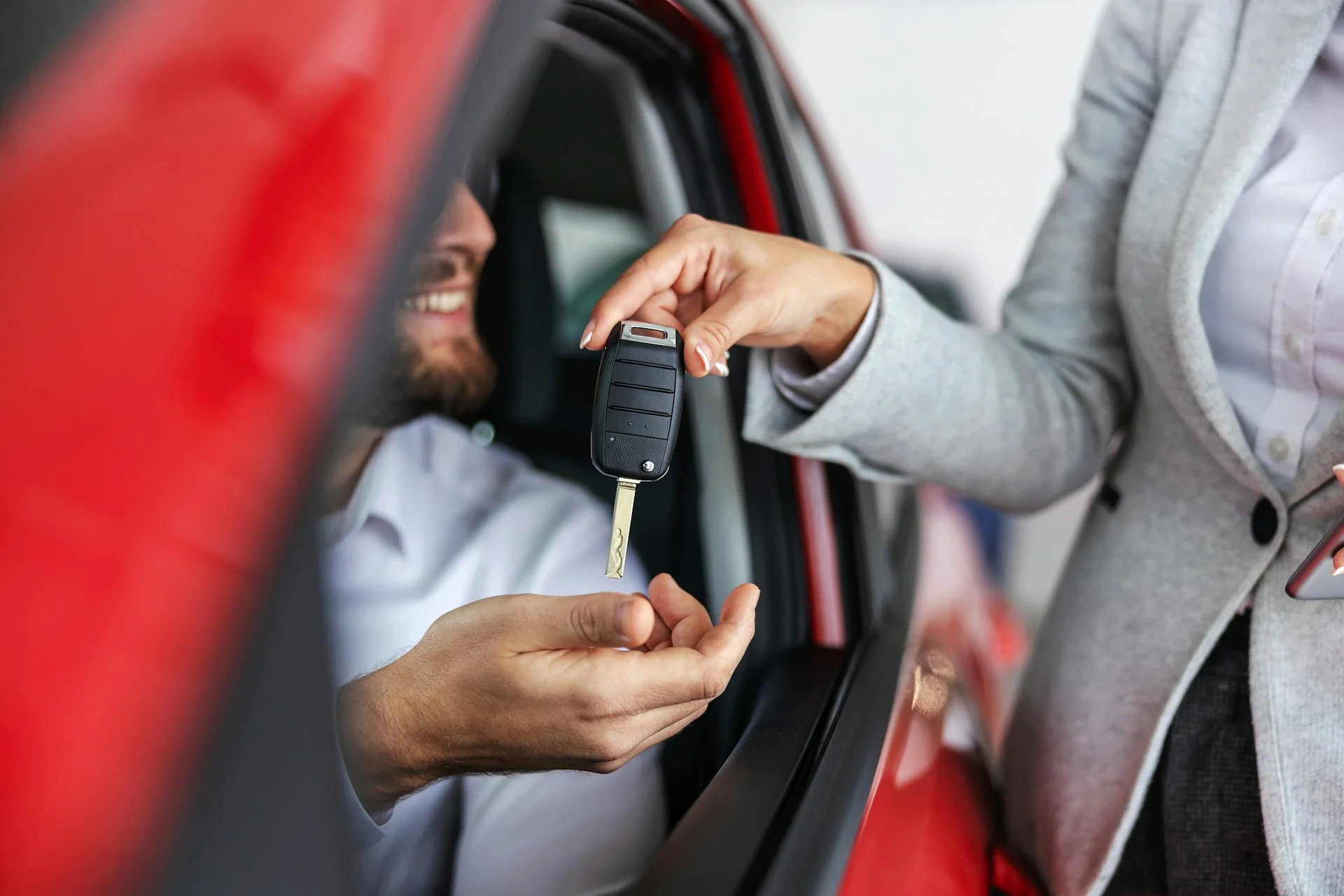Should I lease a car?
If you’re interested in lowering your monthly payments, you may have heard that leasing a car can help you do that. Leasing also often means you don’t have large auto maintenance costs during the year.
But is leasing a car a good idea? What are your options?
What does it mean to lease a car compared to buying a car?
Leasing a car is basically a long-term rental agreement. You don’t own the car; you pay for the use of the car for a certain amount of time–usually from 1-5 years. Often the cars available to lease are new models, so you get to drive a newer car without outright buying a newer car. But at the end of your contract, you need to give the car back, and you’re responsible for the cost of the car if the car is stolen or totaled.
Buying a car means that once you finish making your payments, you own the car outright. Once you own the car, you can drive it and use it without a monthly payment, and you can also sell it or trade it in to help you buy a new car.
Because you assume the cost of the entire car,- if you’re looking for lower monthly payments and want to buy a car you might consider buying a used car. While these are often cheaper than new cars, they may have more issues associated with them and higher maintenance costs.
What are the benefits and drawbacks of leasing?

Leasing isn’t for everyone, but you may find that the benefits outweigh the drawbacks in your specific case.
Benefits:
Usually the monthly payments are lower.
Unusually you lease a car with monthly payments that are 1% of the total cost of the car. So if the car costs 48,000, your monthly payment would be somewhere around $480. Comparatively, the average monthly payment for buying a new car is currently (based on Q4 2022 data) $717, with 15% of consumers spending $1000 or more on their monthly car payment. If you’re used to paying $700 car payments, a $480 payment can be a huge relief.
Maintenance covered under warranty:
New cars often have three years of warranty that covers most repairs. So if you lease a brand-new car you can simply take it to the dealership for free maintenance. New cars don’t have as many maintenance needs as older cars. If your choice is between a $480 payment for a 10-year-old car versus a $480 payment for a brand-new car, the maintenance costs on the brand-new car will be lower, thus saving you time and money.
Brand new every time
When you lease, you get the latest tech. If you want to switch to an electric car but don’t want to commit to rapidly evolving technology, this might be the best way to go fossil fuel-free while waiting for better battery range, efficiency, and infrastructure to develop before you purchase.
Ultimately Own it
If you really love the car you can purchase it at the end of your contract.
Drawbacks:
Your payments don’t build equity:
When we talk about equity, we mean that your monthly payments build value for you to trade on. If you purchase a house for 150k, make 20k worth of payments and then sell the house for 150k, you owe the bank 130k and will receive 20k from the sale. That money can then go as a downpayment on your next house. But when you rent or lease, you might make 20k worth of payments during your use of the car, but when you go to buy a new car you’re back at square one. You have no down payment ready.
You may owe more at the end of the contract:
If you drive your car more than expected, or if the car shows more wear and tear, you may owe extra fees to cover that increased mileage or depreciation. If you want to get out of your contract early, that will trigger an early termination fee or an acquisition fee if you decide to buy the car. You may owe the company money to cover their cleaning costs after you return the car, too.
You’ll never not have a payment:
When you buy a car there is a future when you won’t have a payment. If you purchase expensive cars and sell or trade them in before you finish paying them you’ll pretty consistently have a payment but if you manage your expectations and finances, you can purchase a decent car, pay that off within a few years, and then have many years without a car payment. But with a lease you’ll always have a payment.
It’s more expensive long term
Let’s say you purchase a car and have $700 monthly payments with a 48 month term. After that time, you drive the car for another eleven years. In that eleven years you have an average of $500 per year that you spend on car maintenance. That’s an added $7,500, making your total 15 year cost for the car $41,000.
Now, let’s say you lease. You have steady, $480 payments for the same 15 year period. You get new cars every couple years, but you’ll end up paying $86,400 for it, more than double the cost of buying outright.
Conclusion–can refinancing play a role?
So, is leasing a car a good idea? Leasing might be a good idea if you only want the car for a short time, and care about staying on top of the latest tech–like with electric vehicles.
If you’re in a leasing situation now, you can transition to ownership easily. By buying out your lease you attain ownership of the car at the end of your contract, and sometimes you can negotiate a lower price point for that purchase. You may have to pay a fee to do so, so check your contract terms. Once you buy out your lease you can refinance your loan. Refinancing can get you a better interest rate and zero fees. Get a free quote with RateWorks today to see if how much you could potentially save!


.webp)









